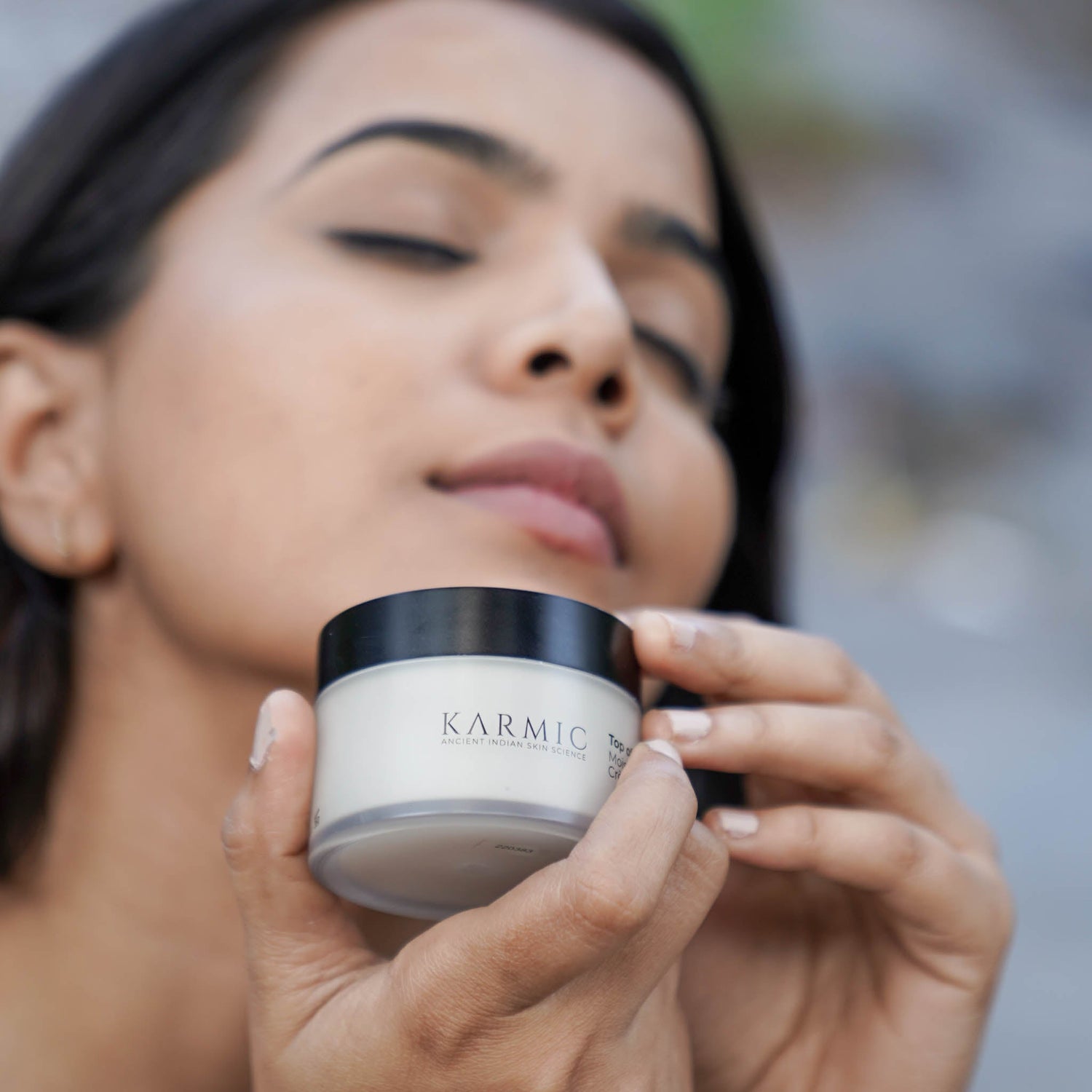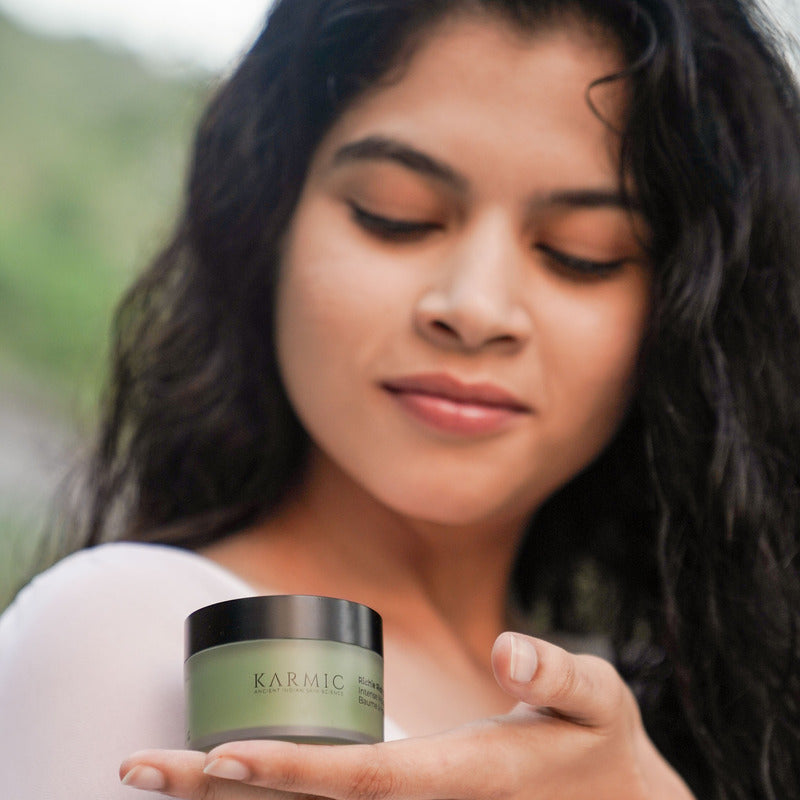Are you weary of wading through the myriad myths about sensitive skin? It's crucial to distinguish between fact and fiction to adopt a skincare routine that truly suits your needs. In this guide, we address five prevalent misconceptions about sensitive skin types and help you make informed decisions to choose best skin care products. Whether you have dry skin, oily skin, or combination skin, understanding the unique needs of your skin can lead to a healthier, more radiant complexion. Join us as we debunk these myths and guide you towards a better skincare routine.
Myth 1: Sensitive Skin is Not Common
Contrary to popular belief, sensitive skin types are far from rare. In fact, approximately 71% of individuals self-identify as having sensitive skin, and this number may be even higher in areas with high pollution levels. Environmental factors, like pollution and exposure to harsh chemicals, contribute significantly to skin sensitivity. This doesn't just affect people with dry or oily skin—it can impact combination skin and other types as well.
Why It Matters for All Skin Types
With sensitive skin being so prevalent, it’s crucial for everyone to consider skincare that accommodates prone skin, especially products designed for sensitive skin types. This could mean opting for hyaluronic acid-based products that hydrate the skin without causing irritation. Hyaluronic acid is known for its ability to retain moisture and is suitable for a variety of skin types, from dry skin to oily skin.
Myth 2: Sensitive Skin is Just a Passing Phase
One of the most harmful myths is that sensitive skin is a temporary condition that will resolve itself. The reality is that for many people, sensitive skin is a long-term issue that requires consistent care and attention.
Persistent Challenges for Prone Skin
Factors like weather changes, stress, and hormonal shifts can temporarily aggravate skin sensitivity, but for many, the issue persists throughout their life. Sensitive skin isn't just a “phase” but an ongoing concern that can worsen over time if neglected. Additionally, sensitive skin types can show signs of dull skin, fine lines, and uneven texture, which can exacerbate discomfort if left untreated.
Myth 3: All Sensitive Skin is the Same
Another misconception is that all sensitive skin types behave the same way. This couldn’t be further from the truth. Sensitive skin manifests in various ways, depending on an individual’s skin type—whether it's dry skin, oily skin, or a mix of both. Some people experience burning or itching, while others deal with dry skin, redness, or dull skin.
Differentiating Skin Types
There’s no one-size-fits-all approach to sensitive skin. A person with combination skin may face very different challenges compared to someone with oily skin. For example, those with dry skin are prone to fine lines and tightness, while individuals with oily skin might deal with clogged pores and breakouts. Tailoring your skincare routine to address your specific triggers—whether it's environmental pollution, hormonal fluctuations, or stress—is essential for long-term skin health.
Myth 4: People with Sensitive Skin Should Avoid Makeup and Cleansers
A common belief is that people with sensitive skin types should avoid using makeup or facial cleansers altogether. While it’s true that harsh products can exacerbate skin sensitivity, the idea that all makeup or cleansers should be avoided is a myth.
The Importance of Choosing the Right Products
The key is selecting gentle, hyaluronic acid-infused cleansers and non-comedogenic makeup products that won't clog pores or cause irritation. Some individuals with sensitive skin types benefit from using products containing natural plant-based ingredients, like aloe vera or chamomile, as these are generally gentler on the skin. However, it's crucial to remember that even natural products can cause reactions in some people, so always patch-test before fully incorporating a new product into your routine.
Myth 5: Sensitive Skin is Always Dry, Red, and Irritated
While dry skin, redness, and irritation are common symptoms of sensitive skin, not everyone experiences these signs. Some individuals with sensitive skin types may have no visible symptoms but still feel discomfort, tightness, or reactivity.
Sensitive Skin in All Forms
For many, sensitive skin types can manifest as oily skin prone to breakouts or combination skin with both oily and dry areas. Recognizing that not all sensitive skin looks the same is important for building an effective skincare routine. Using products that cater to the specific characteristics of your prone skin—whether it’s addressing fine lines or dull skin—can significantly improve your skin's health and appearance.
Diverse Manifestations of Sensitive Skin
Sensitive skin doesn’t always appear as dry, red, or irritated. It can also manifest as oily skin, leading to breakouts, or combination skin, where both dry and oily areas coexist. Tailoring your skincare routine to suit the specific needs of your prone skin, whether you’re dealing with fine lines or dull skin, is essential for improving your skin’s overall health and radiance. Recognising these variations ensures you provide the right care for your unique skin concerns.
Conclusion: Understanding Your Unique Skin
By debunking these myths, we've paved the way for a more accurate understanding of sensitive skin types. Whether you have dry skin, oily skin, or combination skin, it’s essential to comprehend your skin's unique needs to provide it with the care it requires. Products containing hyaluronic acid, gentle cleansers, and non-irritating makeup can help you manage your sensitive skin effectively. With the right products and knowledge, such as those offered by Karmic Skin, you can confidently manage your skin and achieve a healthier, more radiant complexion. Say goodbye to outdated myths and embrace a skincare routine that works for you.
FAQs About Skincare for Sensitive Skin:
What types of skin is the hydrating cream suitable for?
The hydrating cream is suitable for all skin types, including dry, oily, combination, and sensitive skin. Its formula contains gentle, nourishing ingredients that provide long-lasting moisture, promoting healthy, radiant skin without clogging pores or causing irritation, making it ideal for daily use.
How does the cream cleanser work on combination to oily sensitive skin?
The cream cleanser effectively cleanses combination to oily sensitive skin by balancing oil production and gently removing impurities without stripping moisture. Its mild, non-irritating formula soothes sensitivity while providing a deep cleanse, leaving the skin feeling refreshed and soft.
Which product helps calm and protect skin types prone to breakouts, rosacea, and discoloration?
A soothing cream or serum with ingredients like hyaluronic acid and calming botanicals is ideal for skin prone to breakouts, rosacea, and discoloration. It helps reduce inflammation, hydrates the skin, and protects against environmental damage, supporting a more even complexion.
How does the product soothe and nourish sensitive skin?
The product soothes and nourishes sensitive skin by using hydrating and calming ingredients like hyaluronic acid and plant-based extracts. These components alleviate irritation, provide deep moisture, and strengthen the skin’s natural barrier, ensuring a balanced, healthy complexion.




